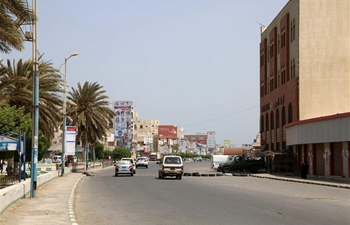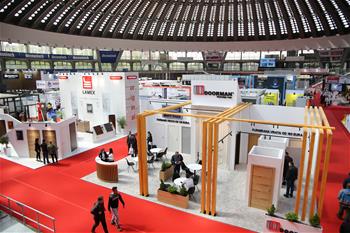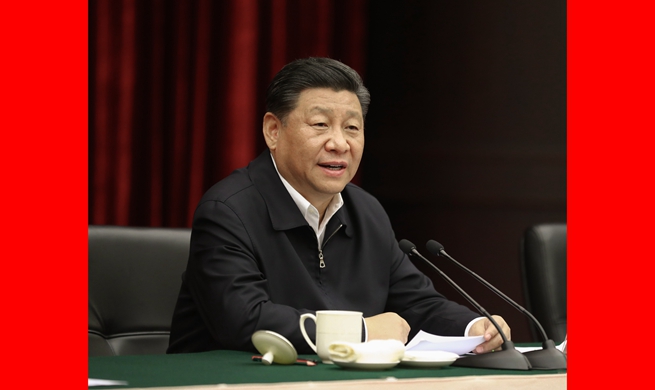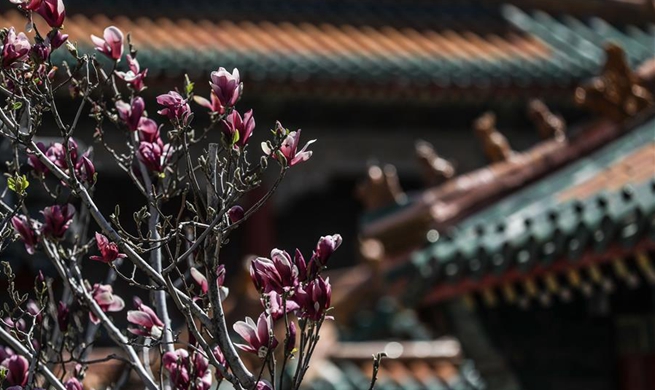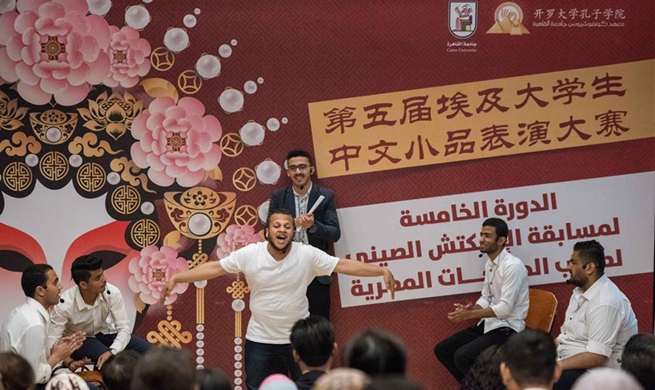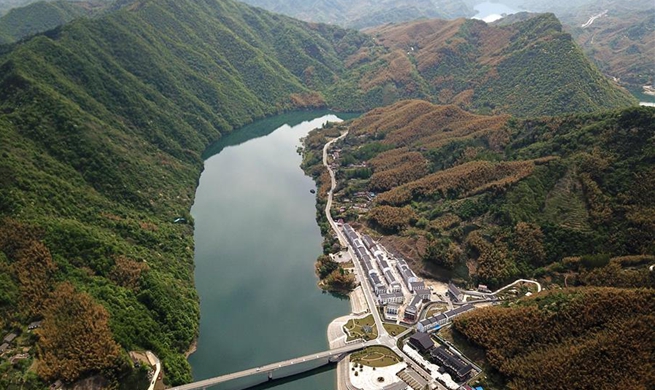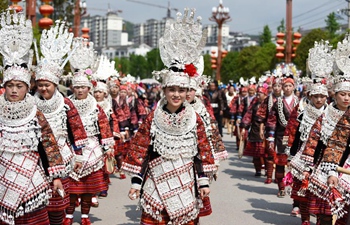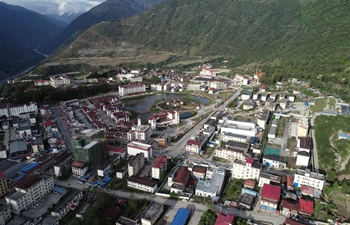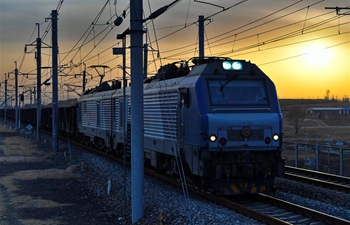WASHINGTON, April 19 (Xinhua) -- The China-proposed Belt and Road Initiative (BRI) is a positive program that will contribute significantly to addressing the important issue of the regional infrastructure gap, a well-known U.S. expert on China has said in a recent interview with Xinhua.
"It's definitely a plus for the recipient countries," said Stephen Roach, senior fellow at Yale University's Jackson Institute for Global Affairs. He added that in the long haul, the initiative will be "a plus for China" as well.
The BRI refers to the Silk Road Economic Belt and the 21st Century Maritime Silk Road. China is to host the second Belt and Road Forum for International Cooperation in Beijing later this month, six years after the inception of the initiative and almost two years since the inaugural forum was held in the Chinese capital.
Noting that the BRI was perceived as a "pretty broad and all-encompassing pan-regional infrastructure program" when Chinese President Xi Jinping first announced it in 2013, Roach said the initiative now is "showing up in countries well outside of the original BRI corridor," especially including such a key member of the European Union as Italy.
A former chief economist at Morgan Stanley and ex-chairman of Morgan Stanley Asia, Roach is regarded as one of Wall Street's most influential China watchers. Despite his 73 years of age, he still shuttles between the United States and China on a frequent basis.
Regarding the notion that the BRI creates "debt traps" for some countries, Roach said he doesn't agree. "I don't think that's a serious, broad risk associated with this particular program."
The scholar, however, did caution against potential negative impacts on BRI projects caused by political instability and corruption in certain countries along the Belt and Road routes.
He said he found it "somewhat disconcerting" that some of the BRI countries "at least in my opinion are vulnerable to political and corruption risk," adding that it is important for China and other participating countries to be mindful of that.
According to the latest statistics, the total trade volume between China and its BRI participating countries was more than 6 trillion U.S. dollars in the 2013-2018 period, during which more than 244,000 jobs were created for the locals. China's direct foreign investment in those countries has exceeded 80 billion dollars till now.
China's import from and export to BRI participating countries totalled 300 billion dollars in the first quarter of 2019, up 7.8 percent year-on-year and occupying 28.6 percent of the country's total foreign trade volume in the period.
With respect to the Asian Infrastructure Investment Bank (AIIB), Roach said he expects the bank to forge closer partnerships with key regional and international development institutions, such as the Asian Development Bank (ADB) and the World Bank.
In operation since 2016 with an authorized capital of 100 billion dollars, the AIIB was founded by China to fund infrastructure investment in Asia and beyond. Progress is underway toward materializing what Roach has envisaged.
The ADB and the AIIB on March 21 signed the Cofinancing Framework Agreement for Sovereign Operations, a document that will guide the overall cofinancing arrangements between the two entities.
Additionally, according to World Bank President David Malpass, he and AIIB President Jin Liqun talked about "ways that there can be cooperation that achieves very high-quality lending programs" in "very good conversations" on the sidelines of this year's World Bank-International Monetary Fund Spring Meetings.
Roach said he is optimistic about the leadership of Jin, who he said is a friend of his.
Denouncing the criticism that China uses the BRI to achieve geopolitical goals, Roach said addressing "the significant and real infrastructure gap" is "entirely within China's purview."
"It's in China's best interest as the world's largest trading nation to make certain that the infrastructure in the region is up to speed in terms of global standards," Roach said. "And China has a lot of expertise and experience in building high-quality, state-of-the-art infrastructure."
Asked whether it is possible that Beijing and Washington can cooperate on the BRI, Roach said "there's always a possibility," citing the example of Caterpillar Inc., the U.S. construction machinery and equipment company that has already participated in BRI projects in 20 countries as of 2018.
Caterpillar's endorsement of the BRI, as well as construction-related activities by other U.S. companies under the BRI framework, "will happen on its own due to the natural attraction of construction projects," Roach said. Enditem



